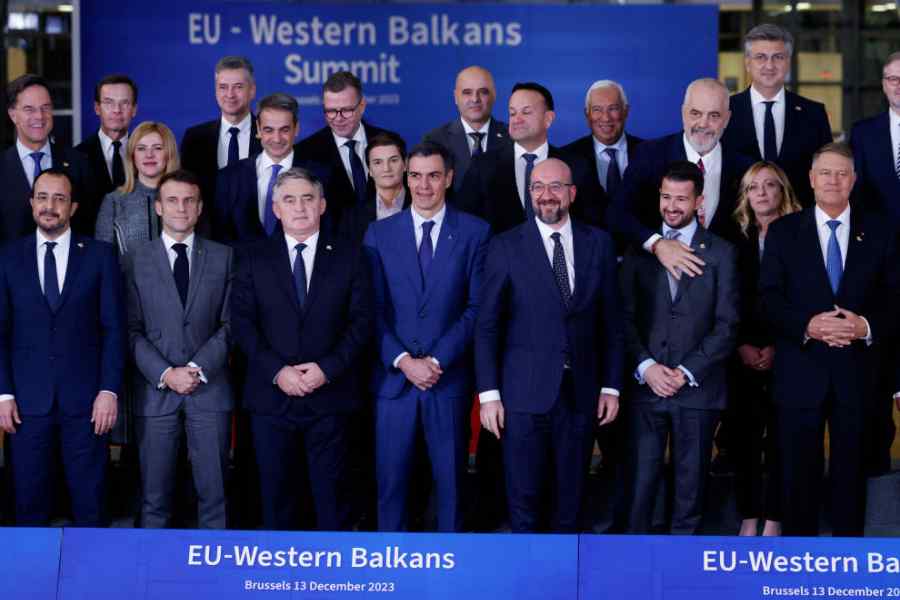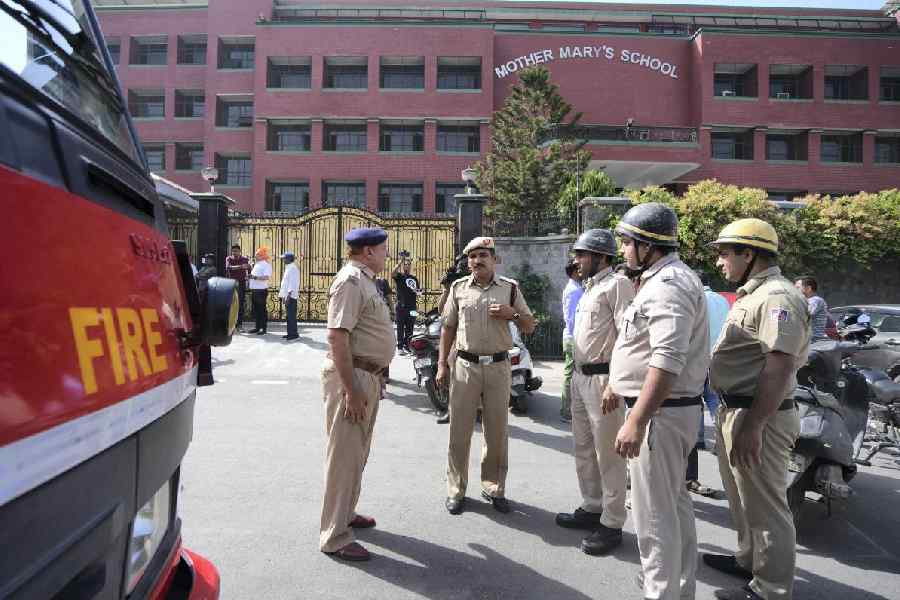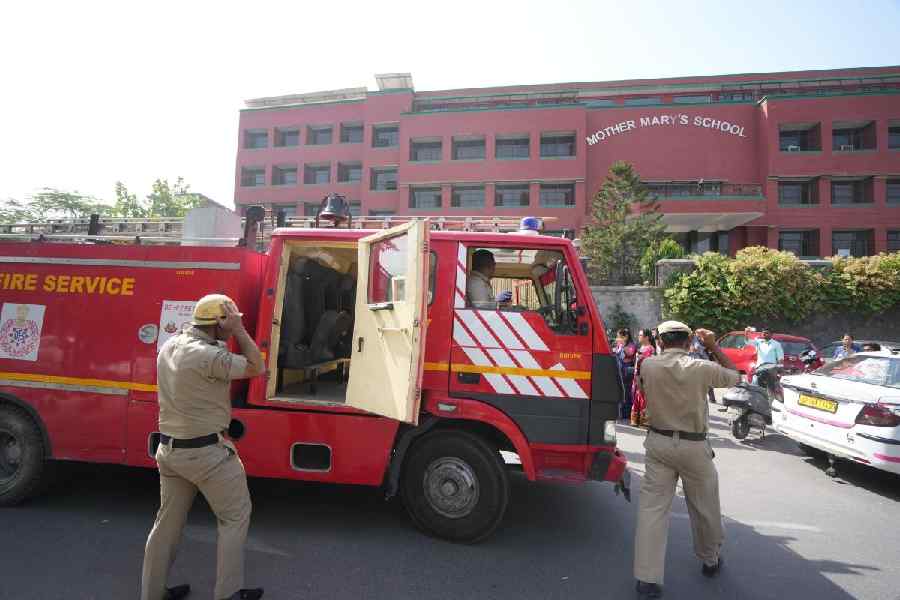I have been in more than twenty European countries this year and I have seen two Europes. Across large parts of the continent, you’re still in a Europe where high-speed trains waft you across frontiers you hardly notice as you travel seamlessly between highly-integrated liberal democracies committed to solve all their remaining conflicts by peaceful means. But take an old, slow train just a few hours to the east and you are spending time in bomb shelters and talking to badly-wounded Ukrainian soldiers with tales from the trenches reminiscent of World War I. I keep the Air Alert! app active on my phone so its warnings of air raids on Ukrainian cities remind me every day of that other Europe.
There’s a similar duality in our politics. Many European countries still have governments on the spectrum between centre-left and centre-right, often with complicated coalitions, yet all committed one way or another to making both liberal democracy and the European Union work. In Poland, we can celebrate the return of such a government under Donald Tusk kicking out a populist nationalist party that had dangerously threatened the country’s democracy. On the other hand, populist nationalist parties of the hard-right have scored notable successes, from the emergence of Giorgia Meloni as Italian prime minister late last year, through worrying regional election gains for Germany’s Alternative für Deutschland, to the recent election victory of Geert Wilders in the Netherlands. The Hungarian leader, Viktor Orbán, is more aggressive than ever as he works against both the interests and the values of the EU while exploiting all the advantages of membership in it. (Brexiters at least had the honesty to leave the club they loathe.)
Which of these two Europes prevails will significantly influence the larger question of whether we are moving towards a Europe of war or peace, of dictatorship or democracy, of disintegration or integration. Vladimir Putin's full-scale invasion of Ukraine on February 24, 2022 ended the post-Wall period — the one that began with the fall of the Berlin Wall on November 9, 1989 — and we are now in the formative years of a new period whose name and character we don’t yet know. In politics, as in relationships, beginnings matter. The first few years after 1945 set the basic parameters for a European order that lasted decades thereafter, as did the years immediately after 1989.
Intellectually, European leaders know this. It’s the commonplace of a thousand politicians’ speeches and think tank webinars. Russia’s war against Ukraine has significantly changed attitudes to security in countries such as Germany and Denmark, not to mention Finland and Sweden, catapulted from long-standing neutrality to NATO membership. But emotionally, and in the wider society, it’s much less clear. Earlier this year, a student at Göttingen University asked me if I thought there would be a new European generation of ‘22ers’ — their commitment to build a better Europe shaped by the impact of the largest war in the continent since 1945. I’ve been asking that question all over the continent ever since, but the feedback is not encouraging. Even in the Czech Republic and Slovakia, people shake their heads and say ‘not really’. In places farther west, such as Italy, Spain, Portugal or Ireland, the negative is even more decided.
This is partly because of the very robustness of the European order built since 1945, and both widened and deepened since 1989. People living in countries that belong to NATO and the EU still don’t really believe that war can come to their front doors. With a heap of problems at home, from inflation to struggling welfare States, they are understandably reluctant to face up to the daunting challenges all around us, from war in the east to migratory pressures in the south, from a melting ice cap in the north to the prospect of a second Donald Trump presidency in the west. And their politicians hesitate to give it to them straight for fear of not being re-elected.
Torn between these two Europes, the EU is supposed to address many of these issues in the next few months. At the European Council in Brussels last week, the result was indecisive. Negotiations were open for Ukraine to eventually join the EU but Orbán blocked a vital package of financial support for Ukraine. European leaders will reconvene in January to remove that block. They also discussed the Israel-Hamas war — on which the EU has been divided and ineffective, although the conflict directly threatens inter-communal relations in our own societies — as well as the security and defence policy that becomes urgent as we face the prospect of a President Trump 2.0 pulling the rug from under us.
Next week, EU finance ministers are supposed to agree to a Franco-German compromise deal on new fiscal rules so complicated and ambiguous that, even with a cold damp towel wrapped around your head, it’s hard to make sense of them. Yet Europe’s future economic growth, and the jobs that offer life chances to young Europeans, will depend on their effect.
The Spanish presidency of the EU Council also aspires (hope against hope!) to get an agreement on a new EU package on migration policy. The issue of migration is roiling the politics of most European countries. Italy has made a deal with Albania to process asylum-seekers there. Germany’s coalition government is introducing a tough new set of migration policies. In France, Emmanuel Macron’s government just suffered a crushing defeat on its new immigration bill because the Right did not consider it tough enough. (In this respect, Britain is an entirely typical European country, except that it doesn’t know it and wants to do it all by itself.)
Underlying all these issues, big enough in themselves, is an even bigger one: can a democratic, law-based, political community of 27 very different countries, without a single hegemon, actually hang together and deliver? The question of reforming the EU so it can’t be subverted by rogue actors like Orbán is generally posed in the context of a possible enlargement to create a Union of more than 35 member states, but it’s there already in this month’s decision-making. As European party politics fragment, this means wrestling not just with 27 different national interests but with the added complexities of multiple coalition governments. And let’s be clear: this kind and scale of non-hegemonic union by consent has never been done before in European history and has no counterpart anywhere else in today’s world.
Which of the two Europes will prevail? It’s the question I’ve been asked everywhere this year since, obviously, historians must know the future. But the answer lies not in any inevitable historical process but in ourselves. It’s up to us.
Timothy Garton Ash’s Homelands: A Personal History of Europe is being published in more than twenty European languages










